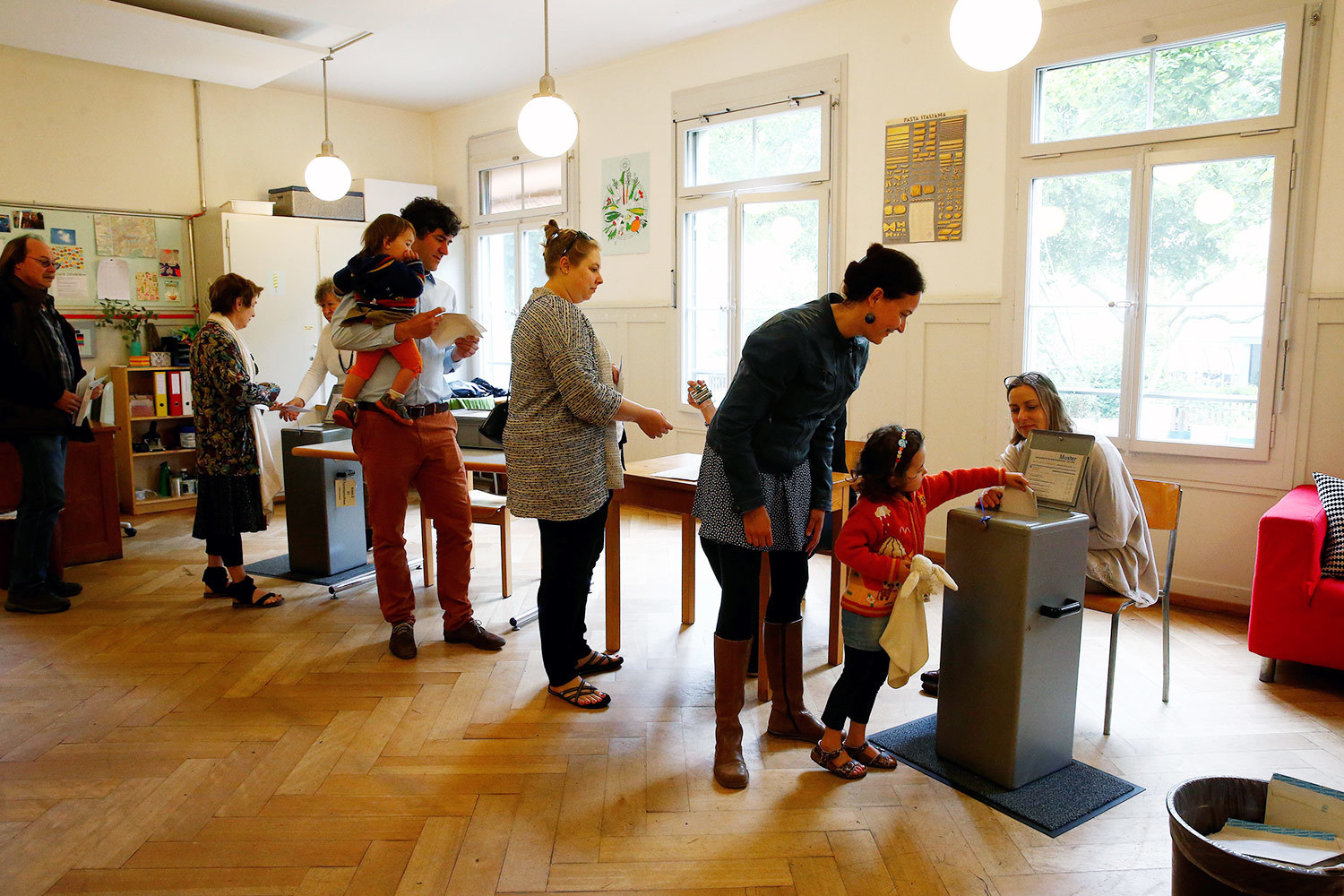Finland summed up the preliminary results of the experiment with a guaranteed basic income

The Swiss take part in a referendum on the introduction of guaranteed basic income. Source: Ruben Sprich / Reuters
For several years now, governments of a number of countries have been actively discussing (and even implementing) the idea of unconditional basic income. Ahead of the rest of the world is Finland, which has decided to pay the unemployed an amount of 560 euros as an unconditional basic income.
However, not all Finns registered at the Labor Exchange participate in the experiment, but only two thousand randomly selected citizens between the ages of 25 and 58 years. From January 2017, they received every month 560 euros. Now Finland has summarized the results of this experiment.
At the time of the experiment, all volunteers were unemployed, as reported by Vedomosti. The payment of basic income did not depend on whether they could find work during the experiment or not.
The authors of the project declared the main goal of the experiment to study the new way of social support for the unemployed. The government decided to find out whether basic income would help simplify the social security system and eliminate excessive bureaucracy. In addition, it was planned to find out how the basic income will affect the physical and psychological well-being of citizens.
As it turned out, the distribution of free funds among the unemployed can improve their welfare, but it does not have a particular impact on their employment. The researchers found that all participants in the experiment began to feel better by the end of it (probably, you can tell that they became happier).
The results of the survey of participants in the experiment were compared with indicators of the control group. It included those unemployed who received the usual allowance. “During the first year of the experiment, the recipients of the basic income were no better and no worse than the control group when looking for work in the open labor market,” said research coordinator Ohto Kanninen of the Salary Research Institute.
Recipients of basic income had significantly less stress. In addition, they were better focused on the task, they had fewer health problems than the control group. At the end of the experiment, about 15% of the recipients of the basic income said they were feeling very well. In the control group, only 10% of the participants gave this answer.
It should be noted that the announced results are only preliminary. To a greater extent they relate to data for the first year of the experiment. The final report will be submitted only by 2020.
It is worth noting that Finland is not the only country where they planned to introduce unconditional basic income. Similarly, the government of Switzerland and even Kenya planned to do. What is the situation with an African country is not yet clear - as far as it can be understood, the project has not gone further.
In Switzerland, they decided to hold a referendum in which the citizens of the country were to decide the fate of the question of unconditional income for citizens. And here it was planned to pay the project participants even more than in Finland - as many as 2500 Swiss francs (this is about 2,200 euros at the time of discussion). And they wanted to pay both those who work and unemployed citizens. Even the children, in the event of a positive resolution of the issue, should have started receiving payments in the amount of 625 francs.
However, the introduction of the payment of unconditional basic income was supported only by 22% of citizens who took part in the referendum. Supporters of basic income believed that there would be more “for” votes. For Switzerland, one of the richest countries in the world, the introduction of an unconditional basic income would be less problematic than many other countries.
The government opposed the idea of basic income. The Cabinet has calculated that a full transition to basic income would have cost the country 208 billion francs. This is about three times more than ordinary federal spending.
